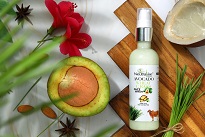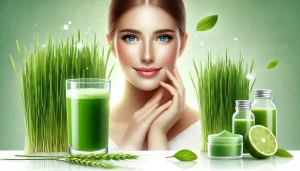What is Eczema?
Atopic Dermatitis, commonly referred to as Eczema is a subtype of dermatitis. It is a non-fatal condition that is usually chronic (lasts throughout the individual’s lifetime with alternating periods of flare – ups and remission).
Like all dermatitis conditions, eczema causes the skin to become dry, inflamed and itchy. It can appear anywhere on the body and varies in severity.
It is not contagious, but it significantly impacts the affected individual’s quality of life with people reporting sleep loss, extreme emotional distress and even financial troubles. Also, the lives of their caregivers are considerably affected too, thus problems with forming genuine social connections is an added burden.
Comorbidities associated with Eczema include food allergies, allergic nasal conditions, asthma, hay fever, contact dermatitis. Moreover, bone density may be affected making the individual more prone to fractures.
Approximately 10 million cases of Eczema are reported per year in India. As per a 2022 report, it ranks 15th in the category of non-fatal diseases globally and secured top spot in the category of skin diseases. (GBD 2022)
Symptoms:
The symptoms of eczema vary from person to person; however, common signs include:
- Itching
- Redness
- Dryness
- Skin Inflammation
- Discoloration
- In some cases, eczema can cause oozing or crusting of the affected areas.
- Development of crusty or scaly patches on the affected areas.
- Thickened, leathery skin.
The itching associated with eczema can be so intense that it can interfere with daily activities and sleep.
Due to a compromised skin barrier, susceptibility to infections increases.
Itchiness and redness are commonly the first signs of dermatitis which are usually followed by other symptoms mentioned above.

Why do I have Eczema?
The exact cause of eczema is not fully understood, but it is believed to involve factors such as:
- Family history
- Compromised/Weakened skin barrier
- Imbalanced natural skin microbiome
- Hypersensitive immune system
- Stress; anxiety, depression can trigger flare-ups.
- Environmental triggers such as exposure to tobacco smoke and some types of air pollutants.
- Potential irritants: Harsh chemicals, soaps, detergents, or other substances.
- Potential Allergens:
- Animal dander
- Certain medications
- Certain foods
- Fabrics like wool, latex or synthetics.
- Insect bites
- Pollen
- Existing health conditions
- Leaky gut Syndrome
How to fight & prevent ?
While currently there is no allopathic cure for eczema, various treatment options are available to manage symptoms and improve skin condition.
Lifestyle changes that can help prevent eczema include:
- Identify your allergens/irritants, record them in a journal and avoid exposure.
- Read product labels carefully to avoid substances that trigger your eczema.
- Avoid smoking.
- Wear protective clothing such as gloves, when handling potential irritants.
- Have short baths with lukewarm water (not hot), using mild soaps.
- Follow up with a good moisturizer.
- Manage stress.
- Adopt a positive outlook on life. Don’t hold grudges and other negative emotions. Forgive and forget.
- Exercise.
Some common Lifestyle changes :
- Do not scratch. Use bandages to help prevent scratching.
- Keep the skin moisturized well at all times to prevent dryness.
- Cool compresses can relieve some of the itching and pain.
- Lukewarm oatmeal baths can help soothe the skin.
- Avoid wearing clothing that’s made from wool or synthetic fibers.
- Do not try to control the urge to go to the bathroom. Delayed bowel movement is detrimental to the gut lining which can worsen your eczema.
- Manage stress. If required, seek assistance from a mental healthcare expert for emotional support.
How do I Neutralise my Eczema?
Neutralise Naturals products are based on the superfood Wheatgrass
Wheatgrass is packed with:
- Chlorophyll
- Glutathione
- The 20 standard Amino acids
- Enzymes
- Fat soluble Vitamins like A, E & K
- Water soluble vitamins like B Complex & C
- Crucial elements like Calcium, Zinc, Iron and Magnesium.
It’s chemical and elemental makeup has bestowed upon it wonderful properties like:
- Excellent Detoxifier
- Potent antioxidant
- Anti-inflammatory
- Antibacterial
- Alkalization
- Cool essence
Since wheatgrass is nature’s product, chances of serious side effects are minimal making it a safe and excellent supplement to daily diet.
Neutralise Naturals harvests these young sprouts of the wheat plant without any nasty chemicals, pesticides or other additives on the 7th day when their nutrient content is at the peak. Its nutrient profile has been bolstered by the addition of roots to make it the ultimate complete nourishment.
Neutralise Naturals’ products recommended for eczema include:
- Wheatgrass powder
- Wheatgrass face wash
- Wheatgrass Soap
- Wheatgrass cream
- Wheatgrass powder:

Unlike others in the market that offer Wheatgrass powder, Neutralise Naturals has also added the roots of the plant, in addition to the leaves, so you get all the nutrients from root to tip.
Improve your overall health and skin by incorporating this super-herb into your daily Diet. Following are a few ways you can use it as:
- Tea: Drinking Wheatgrass tea will help you to Internally cleanse, alkaline, detoxify and strengthen the body systems. You can add lemon and/or honey for taste.
- Smoothies or juices: ‘Green-ify’ your favorite smoothies or juices by adding wheatgrass powder to it.
- Salad: Sprinkle some of this green magic into your salad dressings.
- Paste: Wheatgrass’s cool nature helps to calm and sooth irritation. Get creative by mixing the powder with rosewater, oil, etc. to form a thick paste to apply over the affected area.
- Ice cubes: Give yourself an at home cryotherapy by freezing the concoction in ice cube trays and use them as when desired.
- Wheatgrass infused oil: Wheatgrass powder can be infused into oil to produce a nourishing, moisturizing, soothing massage oil.
Mix 1-2 tbsp of this powder into 2 tbsp of your choice of oil in a glass bottle and let it sit for 2-3 weeks before straining and using it on the affected areas.
- Wheatgrass Avocado Herbal face wash:

A cleansed skin ensures better absorption of the products applied next.
A common misconception regarding face wash is that the drier and tighter it leaves your skin afterwards the better. This is completely and utterly incorrect. An ideal face wash is one which cleanses your skin well, removing the dirt and grime but not stripping your skin of its natural oils.
Ingredients: Wheatgrass with roots, avocado pulp, Coco butter, Shea butter, cow butter, Vitamin E oil.
- Wheatgrass and roots help to draw out the toxins and impurities from the skin. It helps calm and soothe irritation.
- Avocado pulp helps calm irritated skin, keeps it moisturized and strengthens the moisture barrier. It clarifies and soothes the skin all while being gentle.
- Coco butter, Shea butter, cow butter, Vitamin E oil are all well known moisturizing agents.
Directions: Take 2 pumps in the palm of your hands and emulsify. Apply it on the face and gently rub it in for 1-2mins, giving special attention to the problem areas. Rinse with Lukewarm water.
- Wheatgrass Soap: For body.
Wheatgrass with ayurvedic herbs elevates the antibacterial, anti-inflammatory and antioxidant powers. This soap cleanses well and doesn’t strip the skin of its natural oils.
Ingredients: Wheatgrass, Cow butter, Herbs, vegetable oil, aroma therapy oils.
- Wheatgrass calms and soothes irritation.
- The base of the soap is Desi cow butter to which essential oils have been added which help moisturize.
- Beneficial herbs have also been added that are anti-inflammatory. It provides long lasting relief from itching, redness and irritation.
This soap cleanses well and doesn’t strip the skin of its natural oils all while reducing discoloration.
- Wheatgrass Moisturiser cream: For Face and Body.

Our moisturizer is Free of preservatives and other chemicals.
Ingredients: Wheatgrass with roots, cow butter, honey wax, turmeric oil, coconut oil, til oil, neem oil, olive oil, Almond oil, ghee, Vitamin E extract.
- Wheatgrass has antioxidants in it which provide sun protection, preventing darkening of any existing discoloration. The antioxidants also prevent cellular damage thereby slowing down the process of ageing.
- Desi cow butter, ghee and added oils particularly coconut oil, olive oil and almond oil keep the skin soft and moisturized.
- Turmeric oil increases the anti-inflammatory power.
- Neem oil increases the anti-bacterial and purifying power.
Directions: After properly cleansing the skin, apply the cream generously on damp skin to facilitate better absorption.
Diet
While diet alone may not be the sole cause of eczema, certain foods and dietary patterns have been associated with exacerbating or alleviating the eczema symptoms.
For eczematous individuals, it is often recommended to consume a high alkaline Diet, while avoiding potential trigger foods and being mindful of food portions particularly of the acid forming foods.
What should I avoid in my Diet?
Foods that should be avoided/limited include:
- Nightshades: This includes tomatoes, tobacco, eggplant, white potatoes, peppers (except black pepper), and paprika.
- Fried foods
- Sugary foods and beverages
- Processed foods
- Pickled food
- White flour and its products
- Saturated fats
- Trans fat
- Red & Processed meat
- Alcohol
- Limit caffeine consumption or avoid altogether
- Some people with eczema may have a sensitivity to:
- Dairy
- Shellfish
- Gluten
- Nuts
- Strawberries, citrus fruits & their juices are acid forming foods & can potentially trigger inflammation and worsen eczema symptoms.
You may have noticed that most of the foods mentioned above are inflammatory foods as well as acid forming foods.
Food combinations to avoid:
- Don’t mix citrus fruit and their juices with whole grain products and dairy products.
- Don’t combine any type of fruit with white flour products.
- Don’t combine melons, banana and raw apple with other foods. They are to be eaten alone.
- Don’t combine coffee/tea with milk, cream and sugar.
- Don’t eat too many Acid Formers in the same meal.
What can I include in my diet?
To maintain your blood’s natural alkalinity, consuming a diet with 70-80% alkaline forming foods and 20-30% acid forming foods is recommended.
It’s Important to note that the acidity or alkalinity of a food is determined by its effect on the body after digestion, rather than its actual pH level.
Acid forming foods
The acid formers are the heavier, protein foods which require greater breakdown for proper digestion and absorption. They include:
- Meat includes Fish, Fowl and Lamb (recommended more).
- Vegetarians should combine brown rice and beans to make a complete protein.
- Whole Grains
Alkaline forming foods
The alkaline formers are the lighter, watery-type foods that are more readily digested. They include:
- Fresh fruits
- Vegetables, green leafy in particular, as well as tubers.
- Wheatgrass is an excellent alkalizing agent and a potent Detoxifier.
- Amaranth, millet, and quinoa are the only alkaline cereals.
- Almonds
Neutral foods
Dairy is considered to be neutral and hence permitted in limited quantities. However, if it isn’t tolerated, it is recommended to substitute it with soy or goat milk.
Anti inflammatory foods and foods that facilitate regular bowel movement are also beneficial. These include:
- Drink ample amounts of water.
- Healthy fats like olive oil, omega 3 fatty acid foods like fish, flaxseeds, chia seeds, and walnuts.
- Cinnamon, Turmeric, Ginger, Garlic and onion.
- High Fiber foods
- Detox teas
- Warm lemon water
- Probiotics like yogurt and kefir with active cultures.
- Choose kacchi ghani mustard oil, cold pressed coconut oil, olive oil and/or flaxseed oil.
What about cooking methods?
Healthy cooking methods include:
- Boiling or Steaming
- Baking
- Blanching
- Poaching
- Stewing
- Fast stir-frying and Sautéing
Avoid:
- Deep frying
- Barbecuing




Recent Comments